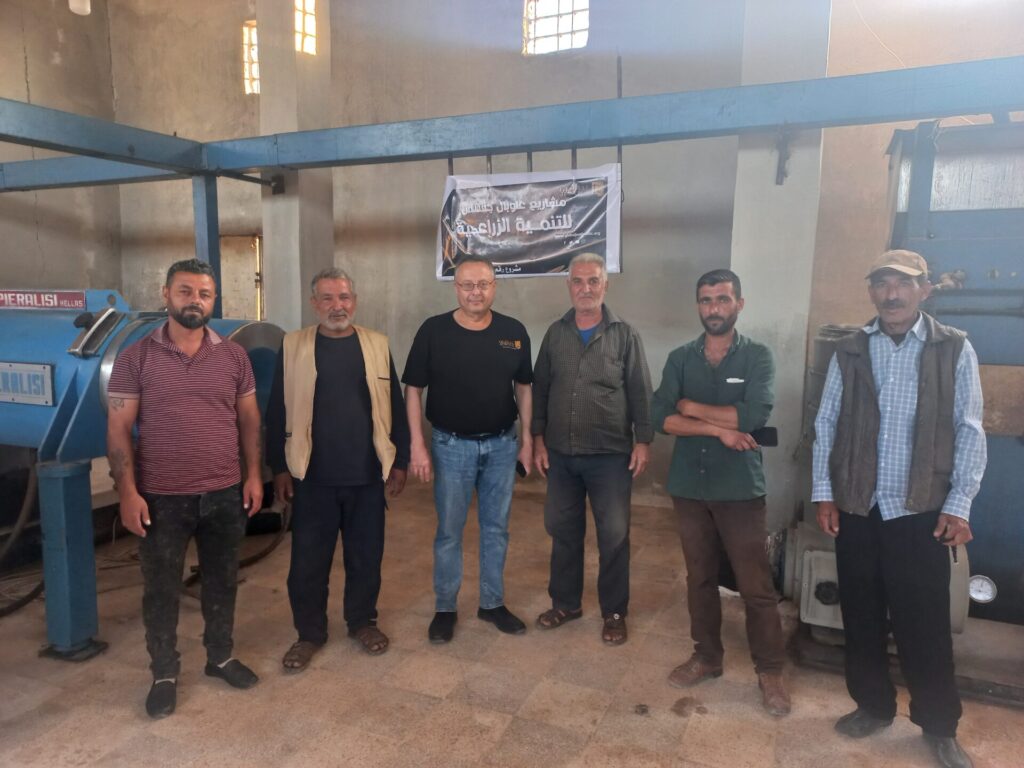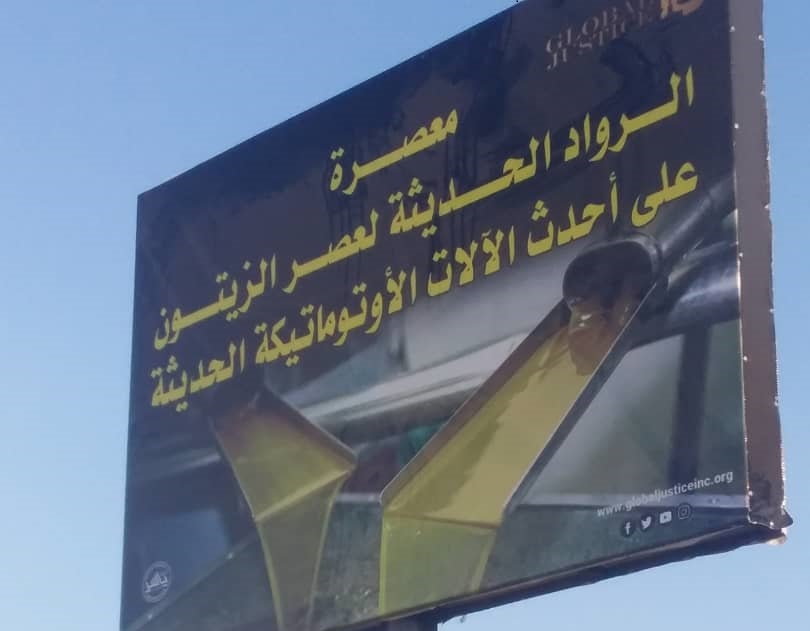Global Justice's Pioneering
Beekeeping Projects
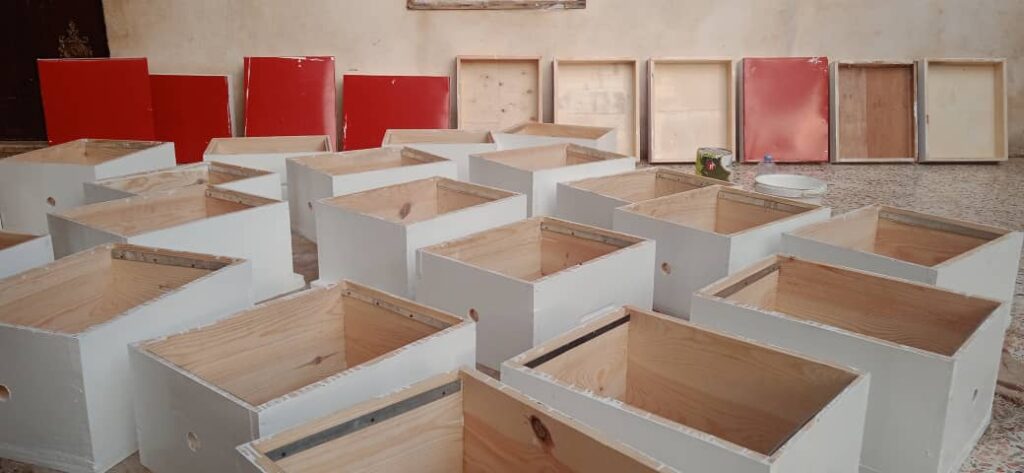
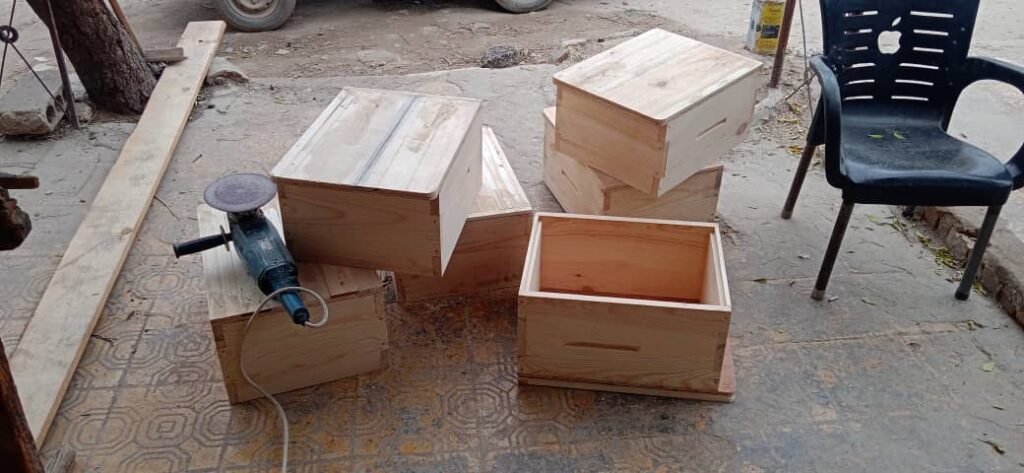
Our organization supported a honey production project by establishing an “apiary” in Northern Syria. Syria’s honey production had reached approximately four thousand tons annually, produced by over 680,000 hives. However, in 2020, production was around 700 tons, and the number of hives decreased by 60 percent.
The country’s honey consumption is estimated at 1,500 tons. Syria’s beekeeping wealth was estimated to be about one percent of the global beekeeping wealth before 2011, with the number of beekeepers ranging between 28,000 and 30,000 at that time.
Therefore, our organization believed that enhancing this type of agriculture-based activity is a good investment, as it introduces an important commodity to the markets and activates skills and expertise among the population.
Hence, the Global Justice apiary was established, which is continuously supported and there’s an ongoing effort to develop it, increase the number of hives, and initiate similar projects in various areas of Northern Syria.
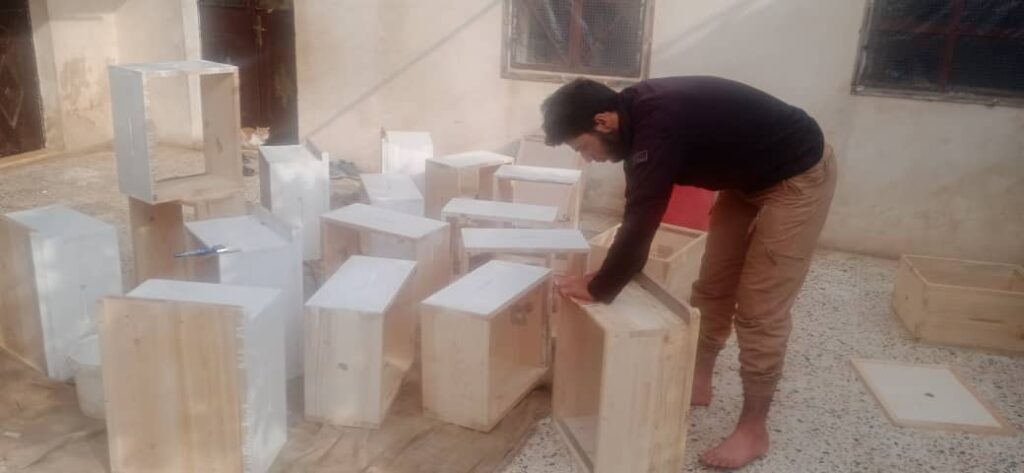
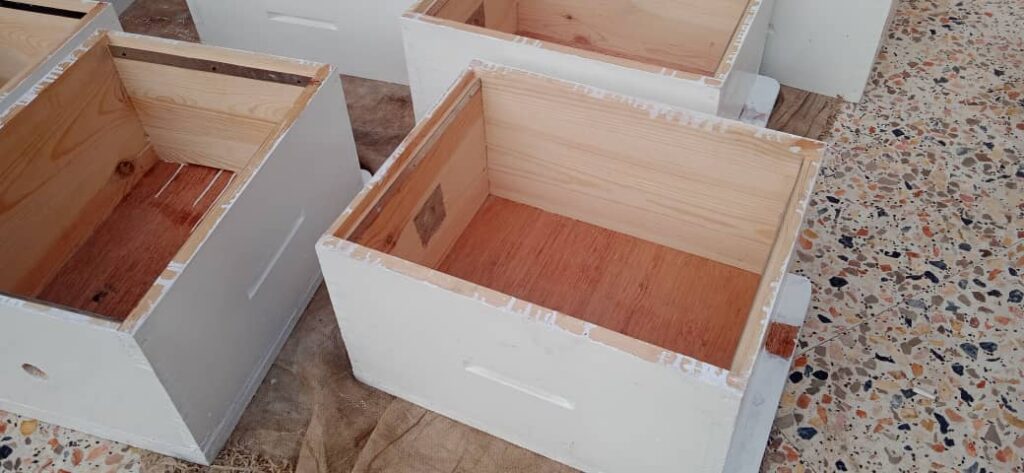
The success of the Global Justice beekeeping project has led many Syrian families to rely on its income.
The success of the Global Justice beekeeping project has led many Syrian families to rely on its income.
Syrians are known for their innovation and creative ideas that help them cope with the difficult conditions they live in. The Global Justice organization supports these ideas and provides the means to bring small projects to life.
Among the projects proposed by the locals was a beekeeping project for honey production. Global Justice provided the support to get it started, and with simple tools, the hives were prepared and the project was built according to model standards in 2023.
Global Justice’s plan is to use the funds it provides to supply more beehives if the project succeeds. In addition to supporting many families with the proceeds from the beekeeping, the project trains and employs workers to launch more similar projects.
The Global Justice beekeeping project, which aims to support Syrian families in the northwest, has succeeded, and production has begun. The experience has shown the importance of supporting small agricultural and productive projects, including olive presses and agricultural lands that have been aided to yield various crops.
Global Justice will continue to support these projects, enhance Syrians’ ability to rely on themselves, and protect them from needing aid.
Dr. Tamim CÜBEYİNOĞLU, representing the organization Dünya Adaleti (Global Justice in Turkey), is treating difficult dental cases of residents in the Rukban camp in Syria.
Global Justice Olive Oil Mill
Our organization supported the operation of olive oil presses in the countryside of Aleppo, a region historically renowned for its production of premium olive oil. We facilitate employment, enhance olive oil production, and promote its widespread sale, thereby providing farmers with favorable conditions both before and after obtaining the oil quantities for marketing.
In the Afrin region alone, the number of olive trees reached 22 million. The revenue from these trees constituted 70% of the income for the residents of this area. Furthermore, the number of olive oil mills and centers in the Afrin region totaled 500.”
